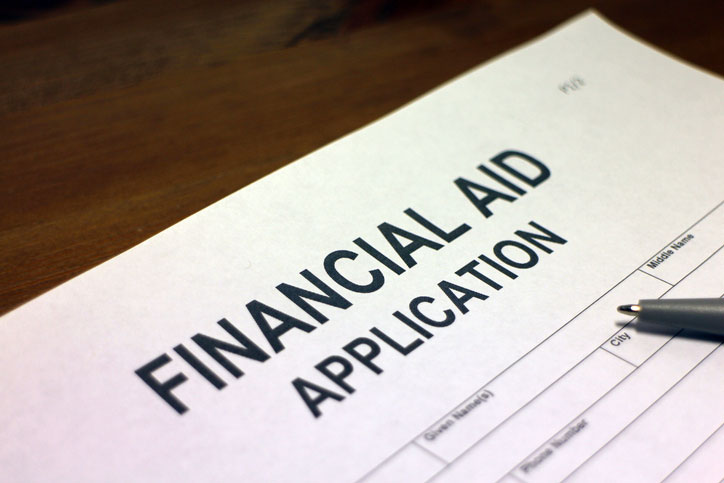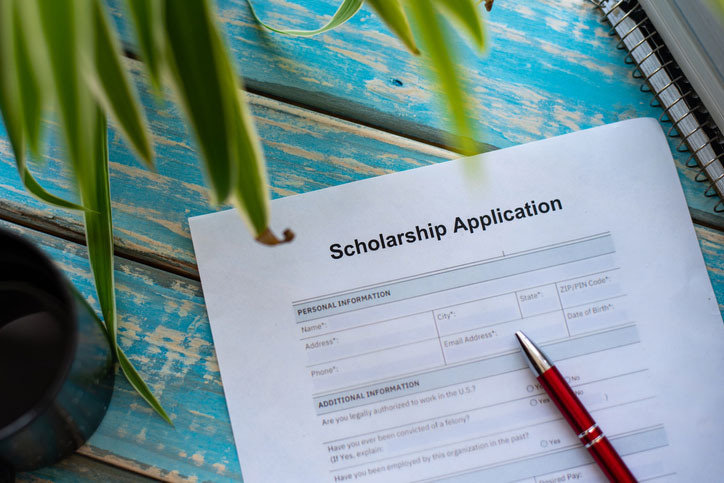Created by Illinois Social work EDU Contributing Writer

Becoming a social worker means answering some deep, personal questions. What kind of social work seems the most fulfilling? What population do you want to serve? Will you become a Licensed Clinical Social Worker (LCSW) or an equity-making policy advocate?
But no matter what your answers to those questions are, you’ll soon have to face a more practical concern — is becoming a social worker in your budget?
In Illinois, social workers are required to get a state-issued license. To get that license, you’ll need either a bachelor’s in social work (BSW) or a Master’s in Social Work (MSW). Both options come with costs. But with the right scholarships, need-based grants, and loan forgiveness programs on your side, those costs don’t have to prevent you from answering your calling.
Getting Started: Financial Resources for BSW Students in Illinois
While you don’t need a BSW to earn an MSW, many professionals start their studies at the undergraduate level. For one thing, students with BSWs can qualify for one-year Advanced Standing MSW programs meaning they can save time and money in the long run.


If you’re a BSW student in Illinois, an impressive number of scholarships, grants, and government financial aid programs can help you save even more.
The Federal Student Aid Office
Before applying for any other type of aid, it’s important to file a Free Application for Federal Student Aid (FAFSA) form with the Federal Student Aid Office. With this single form, you can apply for work study programs, grants, and loans through the federal government. This aid is typically need-based. Even if you’re not sure if you’ll qualify, many school- and state-run aid programs require applicants to fill out a FAFSA form.
This state-funded grant program is open to Illinois residents who demonstrate financial need. However, MAP grants aren’t for a set amount. They’re calculated based on factors like the cost of the college you’re attending, how many credit hours you’re taking, and what other kinds of financial aid you’ll receive. Students can only receive MAP grants at approved colleges in Illinois, but as of 2023, the approved list includes 120 schools.
The Higher Education License Plate (HELP) Program
Instead of opting for the standard “Land of Lincoln” license plate, Illinois drivers can pay an additional fee for a license plate emblazoned with one of 20 college logos. Fortunately, part of this fee goes to the schools themselves so they can fund undergraduate grant programs. Awards vary each year depending on how much funding the program receives. In many cases, filling out a FAFSA form puts students in the running, but be sure to check with your school to make sure you don’t need to fill out anything else.
If you attended an Illinois high school and enroll in one of the state’s 12 public four-year universities, you can receive financial aid through the AIM HIGH Program. Aid is awarded based on financial need and academic performance (GPA, standardized test scores, etc.). Requirements and awards vary by school, but some colleges offer AIM HIGH grants worth up to $28,000. Many of the colleges in this program offer bachelor degrees in social work (BSWs) and other areas related to social justice.
Alliance of Illinois Community Foundations
Community Foundations are county- or region-based organizations with one focus — improving the world around them.. To meet this goal, Community Foundations offer scholarships and grants to students in their areas who embody their principles. As a social work student, you may be a great candidate for some of their awards.
Some of the larger Community Foundations include the:
Not every Community Foundation offers scholarships. Some focus their resources on empowering local organizations. If this is true for the Foundation in your area, it may still be a valuable way to connect with other impassioned advocates and do work you truly believe in.
The Chicago Scholars Foundation aims to prepare the city’s first-generation college students for their education and careers. Students can join in their junior year of high school and receive college counseling services, attend workshops, and even interview with some colleges months in advance. The Foundation offers an impressive list of scholarships for Hispanic, Black, economically disadvantaged, and community-driven students. Some, like the Manuel and Pat Pulido Sanchez Legacy Scholarship, are worth $5,000 or more per academic year.
State-funded Financial Aid Programs for MSW Students
A Master’s-prepared social worker can be a lot of things — a mental health professional, a legal advocate, a researcher, a counselor, and even a public health policy expert. Fortunately, the state of Illinois realizes how important social workers are to their communities and offers a few financial aid programs designed to make earning an MSW more accessible.

Certified Alcohol and Other Drug Counselor (CADC) Workforce Expansion Program
In the face of substance abuse counselor shortages, the Illinois Certification Board (ICB) and the Illinois Department of Human Services (IDHS) have come together to offer tuition assistance, textbook and laptop reimbursements, stipends, and other essential financial aid to students in addiction intervention education. To qualify, you must be enrolled in a CADC Workforce Expansion Program, pursue a CADC credential, and commit to working for two years at an approved agency.
Currently, five CSWE-accredited schools in Illinois participate in this initiative:
- Aurora University.
- Governors State University.
- Loyola University.
- Southern Illinois University — Carbondale.
- University of St. Francis.
This program may also cover CADC application fees and exam costs.
Certified Recovery Support Specialist (CRSS) Success Program
The IDHS demonstrates its commitment to addiction recovery yet again by offering assistance for tuition, books, internships, and other expenses to students seeking either CRSS or Certified Peer Recovery Specialist (CPRS) certification. To qualify, you must pursue these certifications at a school that participates in the program. CSWE-accredited schools like Governors State University, the University of St. Francis, and Southern Illinois University — Edwardsville are participants.
Post-Master of Social Work School Social Work Professional Educator License Scholarship
Along with earning an MSW and a state license, school social workers in Illinois must also earn a license to work with students. To encourage more social workers to enter this vital field, the Illinois Student Assistance Commission (ISAC) offers scholarships that can cover mandatory fees and tuition every year. Applicants must attend a public university, already have a social work license, and commit to work for an Illinois school for two years for every year they receive funding. Each participating school may also have its own requirements.
If you already work for a government social service agency in Illinois (or are eyeing an entry-level position), the Upward Mobility Program can help you take the next step. Qualifying state employees can receive funding for fees and tuition, career planning guidance, and even priority hiring for their new roles. To qualify, you must be pursuing a targeted job title like:
- Rehabilitation case coordinator.
- Child welfare specialist or child welfare associate specialist.
- Corrections assessment specialist.
- Social worker I or II.
- Correctional counselor.
- Human services caseworker.
However, targeted job titles may change depending on the state’s needs. Additionally, you must have completed your probationary period with the state and be an American Federation of State, County, and Municipal Employees-represented worker. Funding is only offered when resources are available.
More Financial Aid on the Horizon for Social Work Students in Illinois
The Illinois Department of Children and Family Services (DCFS) has faced multiple crises over the past few years: high turnover rates, high caseloads, and not enough resources for families in crisis. But in 2021, legislators passed a bill to stem the bleeding — a move that may benefit families and social work students alike.
The signing of this bill created the Pat McGuire Child Welfare Education Fellowship Pilot Program. This initiative provides extra training to child welfare social workers across the state and incentivizes new professionals to enter the field with $10,000 stipends. BSW and MSW students can apply for the stipend for two years and must agree to work at a state-run agency for at least nine months after graduation.
In 2023, the DCFS reported that 12 colleges and universities (including many CSWE-accredited schools) are full partners in the program. Others are set to join soon. As more schools adopt the program and find new ways to improve it, it could very well play a crucial role in making an MSW more accessible and Illinois’ child welfare system more effective.
Scholarships, Grants, and Fellowships for MSW Students
Government agencies aren’t the only institutions that value social workers. Local, state, and national organizations of all kinds dedicate their resources to filling tomorrow’s social service workforce with a diverse and talented group of individuals.

The Dee Yeck School Social Work Foundation Scholarship
Presented by the Illinois Association of School Social Work (IASSW), this $500 scholarship is awarded to two school social work students in their second or advanced year. Recipients also receive a $200 stipend to attend the yearly IASSW conference for free along with a no-cost two-year membership in the IASSW.
The Kott Gerontology Scholars Program
If you’re a Chicago-area social work student focusing on gerontology, you may be eligible for a $10,000 scholarship from the Kott Gerontology Scholars Program. But tuition assistance is only one part of this program. Kott Gerontology Scholars also take part in a 720-hour field experience and work with their internships supervisors on a macro-level project. If students don’t already have a fieldwork placement, the program has partners all across the city.
Some requirements include good academic standing, the ability to work in the field three days a week, and recommendations from two social service supervisors or MSW program faculty.
The Council on Social Work Education (CSWE)
While the CSWE is mostly known as the nation’s leading social work education accrediting agency, they also offer a few exciting scholarship opportunities:
- The Minority Fellowship Program. This program is open to MSW students in their last year of study who specialize in mental health care in BIPOC communities. Awardees receive specialized training opportunities as well as stipends. In past years, the CSWE has awarded stipends of up to $10,000 spread out over an academic year.
- Carl A. Scott Memorial Fund. In memory of a CSWE staff member who heralded social justice and diversity over his entire career, the CSWE awards two $500 book scholarships to students who demonstrate that same passion for equity.
The National Association of Social Workers (NASW) Foundation
In addition to guiding public policy and advocating for social service professionals, the NASW promotes inclusion and celebrates commitment through three scholarships:
- Consuelo W. Gosnell Memorial Scholarship. This $4,000 scholarship is awarded to 10 MSW candidates who show a commitment to working with Hispanic/Latino and American Indian/Alaska Native populations. Awardees must have a 3.0 GPA and can reapply for this scholarship in their second year of study.
- Verne LaMarr Lyons Scholarship. This scholarship is for students who share its namesake’s devotion to promoting mental and physical wellness in African American communities. Students who have been accepted into an MSW program are eligible. In past years, scholarships of about $5,000 were awarded to several students but the exact amount varies depending on contributions to the fund.
- Lawanna Renee Barron Scholarship Endowment Fund. The 2024 to 2025 school year will be the first year for this $1,000 scholarship. It’s open to BSW and MSW students with an interest or experience in serving African American communities in rural areas.
All three of these opportunities are open to NASW members in good standing. According to the organization’s website, students can join at a discounted yearly rate of $57.
The Davis-Putter Fund offers multiple scholarship opportunities to students who take an active role in promoting social justice in every form. All college and trade or technical school students are eligible. In the 2023 to 2024 academic year, the organization awarded about 30 scholarships. The highest amount was $15,000 and the average was $7,500.
School-specific Scholarships and Assistantships
While there are plenty of financial aid options available to MSW students all over the state and country, many of Illinois’ schools of social work offer their own funding opportunities. They generally fall into two categories.
The first category is school-specific scholarships. Generally, scholarships at the graduate level are rarer than at the bachelor’s level — but you wouldn’t know it by looking at MSW programs in Illinois.
For instance, the Jane Addams School of Social Work at the University of Illinois Chicago offers nine MSW scholarships. The University of Illinois Urbana-Champaign offers an astounding 24. Other schools in Illinois, both private and public, follow suit.
The second form of school-specific aid you’ll encounter is the paid graduate assistantship. Available positions vary by school, but MSW students are often assigned to assist a social work faculty member with either research or teaching. There are also general assistantships in which you might help an administrative department of the school. Typically, assistantships are capped at 20 hours per week.
Before striking an MSW program off your list because of cost, remember to explore these opportunities at each school.
Loan Repayment Programs for Social Workers
Scholarships, grants, and other forms of financial aid don’t always cover every expense. But if trying to pay off student debt as you start a new career sounds intimidating, a state or federal loan repayment program can lighten the load.

Community Behavioral Health Care Professional Loan Repayment Program
Licensed Clinical Social Workers and CADC-certified substance abuse specialists can qualify for up to $6,500 and $2,500 of loan relief per year, respectively. This program is offered through the ISAC. To be eligible, professionals must have recently been employed by an approved community mental health agency in an HPSA for 12 consecutive months. For each year loan relief is received, you must also work in a similar area for another full year.
School and Municipal Social Work Shortage Loan Repayment Program
Current social workers who have worked in a public school or village, city, or incorporated town in Illinois can qualify for a one-time student debt relief payment of up to $6,500. Like the behavioral health program, this program is administered by the ISAC. Awards are calculated based on the size of an individual’s loan and how much funding has been allocated to the program that year.
Public Service Loan Forgiveness (PSLF)
If you work full-time for a federal, state, or tribal agency or a qualifying not-for-profit organization, your student loans may be forgiven after making 120 payments. To be eligible, you must have a federal Direct Loan and be enrolled in either an income-driven repayment plan or a 10-year Standard Repayment plan. PSLF rules are subject to change so be sure to check with the US Department of Education for updates.
The National Health Services Corp (NHSC)
America is in the midst of a healthcare provider shortage crisis. Rural and impoverished urban populations are often hit the hardest. The NHSC sends professionals (including social workers) to these areas. Professionals who sign two-year contracts with the NHSC are eligible to receive up to $50,000 in student loan relief. Additional contracts can lead to more aid.
Now that you know your financial aid options, explore our Editor’s Picks for the top MSW programs in Illinois. For a more budget-friendly list, check out the most affordable CSWE-accredited programs in the state.




